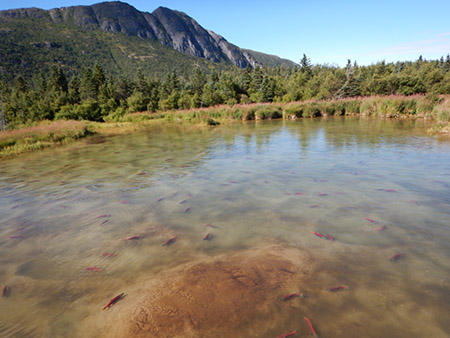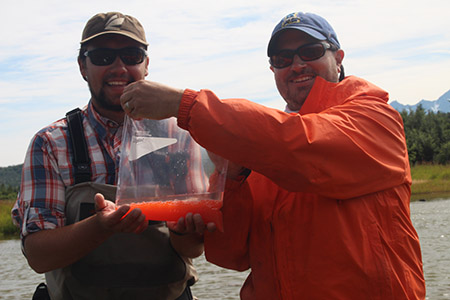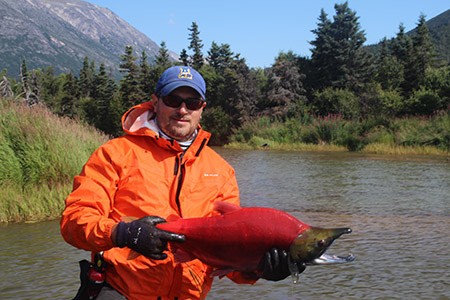Temperature, phenology, and embryo survival in Western Alaska sockeye salmon populations: the potential for adaptation to a warming world?
Project Description
This research focuses on climate change and the potential for adaptation in Bristol Bay sockeye salmon. In particular, we will be investigating sockeye salmon populations in the Kvichak River Watershed, specifically populations that spawn on the shores of Woody Island in Lake Iliamna and in groundwater fed ponds near the village of Pedro Bay, in the northeast corner of Lake Iliamna. This work uses long-term records of temperatures collected by colleagues at the University of Washington, as well as hind-and forecasted regimes to predict early life history sockeye salmon phenology given past, present and future temperature regimes. Additionally, this project includes experimental rearing of sockeye embryos in the lab under present and future climate conditions in order to describe the adaptive capacity of multiple population of Bristol Bay Sockeye. This 'common garden experiment' will allow us to quantify developmental plasticity of two populations that experience fundamentally different temperature regimes (cold and constant vs warm and variable) during embryo development and allow us to gauge the potential responses to expected rising temperature for this region.


Project Funding
Amount: Western Alaska LCC
Start Date: 2014-09-00
End Date: 2016-08-00
Research Team

Peter Westley
Principal Investigator
Assistant Professor
Specialties:
- Phenotypic plasticity
- Life history evolution
- Dispersal and philopatry
- Contemporary evolution
- Aquatic invasions and colonization
- Eco-evolutionary dynamics
Jeffrey Falke
Co-Principal Investigator
Specialties:
- Freshwater fish ecology and conservation biology
- Landscape and spatial ecology of freshwater systems
- Ecology and evolutionary biology of salmonids
- Climate change impacts on aquatic systems
- Impacts of introducted species on native aquatic fauna



